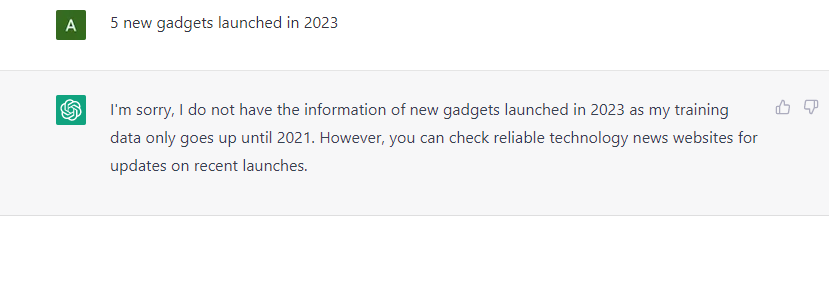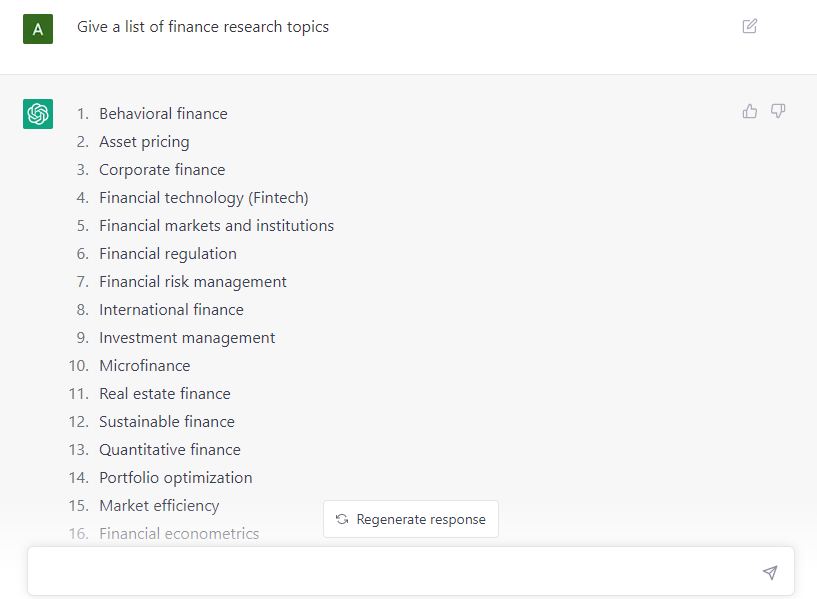ChatGPT can assist students in their research for homework by providing relevant information and answering questions related to the topic
In this blog, you will read about the following:
- What is ChatGPT
- How does chatGPT work
- Analyzing academic questions using ChatGPT
- Reliability of ChatGPT
- Why is ChatGPT banned in some educational institutions
An Introduction
The introduction of ChatGPT on the internet has stirred up a lot of discussions and whispers about how an AI can write and create pertinent content out of thin air while being just as accurate as a human. Some believe it to be the next best thing to being a human. This makes everyone curious about how an AI can work around it.
What is Chat GPT and how does it work?
ChatGPT is a platform developed by OpenAI that can produce human-like responses to a wide range of stimuli because it has been trained on a vast range of internet text. It employs a transformer design and is enhanced for a narrower range of tasks.
The model generates text by predicting the next word in a sentence, given the previous words as input. It uses a technique called "masked language modeling" during the training process, where some of the words in the input are replaced with a special symbol, and the model is trained to predict the missing words. This allows it to learn the probability distribution of words in a given context, which it can then use to generate new text similar to the input.
Testing the ChatGPT Content
ChatGPT can write content on practically any topic under the sun because it is trained on a broad range of publically accessible content. One important concern that undoubtedly emerges in the thoughts of ChatGPT users is how accurately the platform delivers the said content after receiving so much attention from all over the internet in no time.
One of the main drawbacks that have been raised is ChatGPT's inability to deliver accurate statistics. Many users are suggesting that the algorithm is flawed because it only predicts the words that should appear in a phrase or paragraph on a specific topic after the word that comes before them.
Therefore, it becomes crucial to determine whether or not it can be trusted.
This blog will look at three standards by which chatGPT can be evaluated. ChatGPT can write articles on practically any topic because it was trained on such a broad range of publically available content. These criteria are accuracy,
plagiarism, and
grammar.
The goal is to evaluate chatGPT's content production abilities.
We'll cycle through each of these categories on chatGPT, which will feature content on a variety of issues, by placing a few questions in each, along with some facts, short answer style, essay-style questions, and list-style questions. This procedure will enable people to understand how well this AI functions.
1. Short answer style question
For Example, Physics Research Question
A physics question answered by ChatGPT which is appropriate and correct to the question asked.
This short question type category in the subject physics has shown to-
- Accuracy - 100%
- Plagiarism - 0%
- Grammar accuracy - 100%
2. Essay-type question
For this criterion, we pose an
essay-style question to chatGPT, review the responses for accuracy, originality, and grammar, and determine whether or not they adequately address the substance of our query. In keeping with this, we sent the following query to chatGPT, and the results we found were as follows-

The latest question whose data cannot be fetched by chatGPT
We observed that chatGTP is unable to fetch the recent data and therefore can prove to be irrelevant at times. However, we have also checked another essay-type question where we found opposite results -
"Q: What role does media play in some big crime?"
- Accuracy - 100%
- Plagiarism - 0%
- Grammar accuracy - 100%
3. Fact style question
"Q: The ancient Phoenician city of Constantine is located in what modern-day Arab country?"
A: The ancient Phoenician city of Constantine is located in modern-day Algeria.
After putting this question on ChatGPT, we found out that it has top-notch accuracy and correctness in regard to the one-word question style.
4. Technical Question
In this part, we entered a mathematical question in the chatbot, and here is what we found -

Here is a mathematical question that chatGPT could not provide a numerical answer for.
In this category, however, we found that the answer produced by chatGPT is not appropriate to the query asked as it does not solve the mathematical query in a methodical way, which eventually defeats the purpose of the question.
5. List-style Question
A list of research topics provided by chatGPT, which is relevant to the question asked.
Upon using this tool with this category, we found that it has a one hundred percent accuracy in the answer to the question.
Analysis - Using ChatGPT to Answer Academic Questions
In this section, we will talk about the conclusion of the above analysis, as to how or how not, we can use ChatGPT in answering academic questions.
To answer this, I would say it is a mix of both. Let me explain this further. From the above analysis, we observed that in the short answer type, facts, and the list style questions-answers did really well on ChatGPT and the desired answers were achieved through it.
But, on the other hand, we saw that essay-style questions, also known as long-format content, have the potential to contain plagiarism. As a result, we learned that human intervention is necessary when creating long-format-type questions. Despite the fact that AI can create outstanding content, a human cannot be replaced by AI.
One factor that is missing from the chatGPT-produced content is the personalization of the content. What we mean by this is that; catering to the readers of the content - can only be achieved when a human writes it as he or she would be aware of the sentiments behind the content which artificial intelligence has failed to do.
Moving further in this blog, we will talk about,
Why is ChatGPT banned in some universities?
There are a plethora of opinions floating around ChatGPT in the world today. Without a doubt, it has made things easier for many people across the world who used to struggle to get information and put it together into words. But it also has a dark side to it and we are going to be discussing that in this section
When it comes to educational institutions, from time immemorial, authenticity has been the core of these institutes, which is the reason why they are able to produce excellent graduates from their institutions. Now, with the advent of ChatGPT, originality, authenticity, and ethics have gone for a toss, since students have resorted to this application in completing their assignments and homework; which will eventually help them with nothing in the long run.
Here are some of the educational institutions that have decided to ban this AI tool and also the reasons behind it are stated below -
- The New York City Department of Education blocked the chatbot from school networks and devices across the district, due to the alarming situations over plagiarism in schools.
- Seattle Public Schools put similar limits on the use of the chatbot. They have restricted chatGPT because they do not tolerate student plagiarism.
- The Los Angeles Unified School District has acknowledged that the prohibition was preventative and had "academic honesty" as its primary goal.
- Baltimore County Public Schools in Maryland have now prohibited access to the site on student devices and browsers.
- Sciences Po, one of France's top universities, outlawed the use of ChatGPT and other AI tools and warned students who disobeyed the new restrictions will be expelled.
- The RV University in Bangalore, India, has performed surprise visits and tests on students who are suspected to be using this technique. The institution has urged its students to rework their content and prohibited them from utilizing chatGPT.
To sum up
We have virtually finished exploring all that chatGPT has to offer so far, and users are raving about its ability to provide responses that are human-like, which raises the possibility that it will soon transform how people interact with computers and change how information is retrieved.
However, ChatGPT does not necessarily perform an internet search because it is not a search engine and therefore, it generates responses using the knowledge it gained from training data, instead. All output should therefore be fact-checked for timeliness and correctness. This leaves space for error.
In between all its pros and cons, as a user, it is solely up to you how well you use this AI chatbot to your advantage. Despite its shortcomings, ChatGPT is proving useful in real-world situations.
![[object Object]](/_next/static/media/star-bottom.7253800d.svg)
![[object Object]](/_next/static/media/star-bottom.7253800d.svg)


 The latest question whose data cannot be fetched by chatGPT
The latest question whose data cannot be fetched by chatGPT Here is a mathematical question that chatGPT could not provide a numerical answer for.
Here is a mathematical question that chatGPT could not provide a numerical answer for.